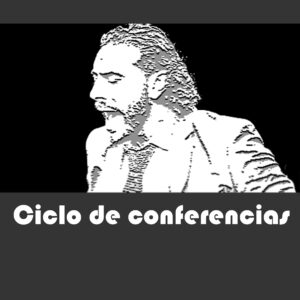VII Edición Flamenco en Red – Ciclo de conferencias
CICLO DE CONFERENCIAS

Este ciclo se compone de cuatro conferencias en torno al flamenco en las que se profundiza en temas como el flamenco en la Sevilla del siglo XVII, los cantes de Málaga, la transición del bolero al flamenco o el flamenco como motor económico de la ciudad.
- Pioneros del cante en la Sevilla del siglo XIX, a cargo de Manuel Bohorquez, periodista y crítico de Flamenco
Accede al vídeo aquí
- Cantes y Cantaores de Málaga, a cargo de Ramón Soler, escritor y flamencólogo
Accede al vídeo aquí
- De lo bolero a lo flamenco, a cargo de Faustino Núñez, flamencólogo
Accede al vídeo aquí
- El flamenco como motor económico de la ciudad, a cargo de José Ruiz Navarro, director de la Cátedra de Emprendedores de la UCA
Accede al vídeo aquí

